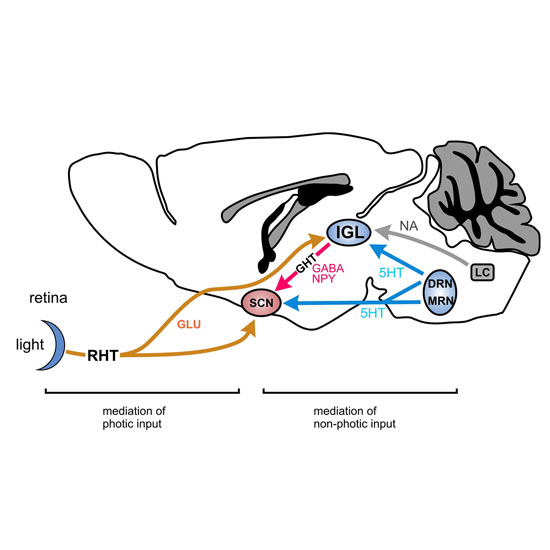Disturbed Processing of Contextual Information in HCN3 Channel Deficient Mice
09-Jan-2018
Front. Mol. Neurosci., Volume 10, Article 436, doi: 10.3389/fnmol.2017.00436
Front. Mol. Neurosci., online article
Hyperpolarization-activated cyclic nucleotide-gated channels (HCNs) in the nervous system are implicated in a variety of neuronal functions including learning and memory, regulation of vigilance states and pain. Dysfunctions or genetic loss of these channels have been shown to cause human diseases such as epilepsy, depression, schizophrenia, and Parkinson's disease. The physiological functions of HCN1 and HCN2 channels in the nervous system have been analyzed using genetic knockout mouse models. By contrast, there are no such genetic studies for HCN3 channels so far. Here, we use a HCN3-deficient (HCN3−/−) mouse line, which has been previously generated in our group to examine the expression and function of this channel in the CNS. Specifically, we investigate the role of HCN3 channels for the regulation of circadian rhythm and for the determination of behavior. Contrary to previous suggestions we find that HCN3−/− mice show normal visual, photic, and non-photic circadian function. In addition, HCN3−/− mice are impaired in processing contextual information, which is characterized by attenuated long-term extinction of contextual fear and increased fear to a neutral context upon repeated exposure.











